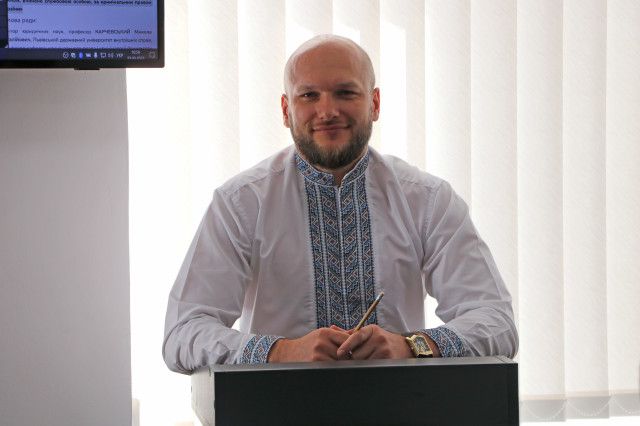Ukraine’s $8 billion IMF loan trapped by Belgium’s frozen assets veto

Belgium collected €1.7 billion ($1.77 billion) in taxes from frozen Russian assets in 2024 while blocking a €140 billion ($145.6 billion) loan mechanism that would redirect those earnings straight to Ukraine. The standoff comes as falling interest rates slash potential aid annually by nearly €2 billion ($2.08 billion).
Belgium’s objection traps Ukraine’s $8 billion IMF loan over three years. The fund requires proof of financial viability that depends on the EU mechanism, which Belgium refuses to approve. According to the National Bank of Ukraine, Ukraine’s 2025 budget deficit stands at 25% of GDP, requiring $51.5 billion in external financing this year alone.
Belgium’s profitable objection
Belgium opposes the €140 billion ($145.6 billion) “reparations loan”—which would use frozen Russian state assets as collateral—citing concerns about financial liability if an international court rules the use of Moscow’s reserves illegal. Most frozen assets sit in Brussels-based Euroclear.
The Belgian government raked in €1.7 billion ($1.77 billion) in corporate taxes from Euroclear’s earnings on frozen Russian assets in 2024 alone.
Under the current system, Belgium collects these taxes and decides how, when, and whether to spend that money on Ukraine, maintaining revenue and leverage. Under the proposed EU loan mechanism, earnings flow directly to Ukraine through EU frameworks, cutting Belgium out entirely.
Belgian Prime Minister Bart De Wever has pledged €1 billion ($1.04 billion) annually in defense aid to Ukraine. Belgium claims tax revenue from frozen assets funds, though no independent verification exists of whether the full €1.7 billion ($1.77 billion) reaches Ukraine or funds other Belgian priorities.
The disappearing pot
The delay carries a concrete cost: falling European interest rates mean frozen Russian assets will likely generate €5 billion ($5.2 billion) in 2025, down from €6.9 billion ($7.18 billion) last year, Euroclear reported.
The interest matters because it’s what Ukraine can currently access—Europe froze the €193 billion ($200.7 billion) principal but won’t seize it outright, citing legal barriers.
When interest rates climbed in 2022, those frozen assets earned just €821 million ($854 million). By 2023, they earned €4.4 billion ($4.58 billion); in 2024, €6.9 billion ($7.18 billion). That peak has passed. Euroclear warns the decline will continue as central banks cut rates further, meaning every month the EU spends arguing means less money reaches Ukraine’s defense.
The timeline trap
The International Monetary Fund is considering an $8 billion loan to Ukraine over three years. Still, IMF approval hinges on whether the EU can finalize its own €140 billion ($145.6 billion) loan using frozen Russian assets, Politico reported. One European Commission official and diplomats from three member countries told Politico that securing the EU agreement would convince the IMF of Ukraine’s financial viability—a requirement for the Washington-based institution to lend to any country.
Belgium blocked the loan at the October 23-24 Brussels summit, demanding legally binding guarantees from other member states.
EU leaders stripped the €140 billion ($145.6 billion) reference from official conclusions, instead asking the European Commission to present “options for financial support”—language considerably weaker than the concrete proposal Germany and Poland had pushed.
The next EU leaders summit is scheduled for December 18-19, while the crucial IMF meeting determining Ukraine’s loan will likely occur in December, creating a structural impossibility even if Belgium reverses course. Polish Prime Minister Donald Tusk insisted December’s summit must be the “final deadline for a decision: yes or no.”
The ownership question
Belgium’s objection centers on potential Russian legal challenges if Moscow demands asset return after a peace deal or sanctions lift. The Belgian government fears bearing sole financial responsibility if an international court rules against asset use.
Property ownership has three pillars under Roman law, which underpins European legal systems: exclusivity (accessing your property), transferability (selling or giving it away), and enforceability (legal protection of these rights).
When Russia launched its full-scale invasion in February 2022, Europe restricted two of three. Freezing €193 billion ($200.7 billion) in Russian central bank assets denied Moscow exclusivity and enforceability. Russia can’t access the money or sue to recover it. Only transferability remains technically intact—though meaningless without the other rights.
Europe had compelling grounds for these restrictions: a state waging a war of conquest against its neighbor faces consequences under international law. The question now is whether Europe will exercise its authority over the final element of ownership by redirecting those assets to Ukraine’s defense.
Belgian Prime Minister De Wever cites Japan as a precedent, noting that Tokyo holds €50 billion ($52 billion) in frozen Russian reserves and is cautious about direct lending. However, Japan is providing $3.3 billion to Ukraine through the G7’s ERA loan mechanism backed by asset earnings, which is not the type of reparations loan the EU proposes.
What’s at stake
Ukraine’s National Bank projects the country needs $51.5 billion in external financing in 2025, declining to $45 billion in 2026 and $39 billion in 2027. The existing G7 loan program, using only windfall profits from frozen assets, provides a total of $50 billion—far short of the requirements.
With US support declining under President Donald Trump, the IMF expects the EU to shoulder Ukraine’s financial needs in the coming years.
While the IMF’s $8 billion program is relatively small, its approval signals to investors that Ukraine is financially viable and on track with reforms, which one Ukrainian official called “a benchmark for other countries and institutions to evaluate whether Ukraine is doing proper governance.”
Without the frozen assets mechanism, European defense support would continue through annual national budgets subject to parliamentary approval and six-month sanctions renewal cycles that Hungary or other member states can threaten to veto.


